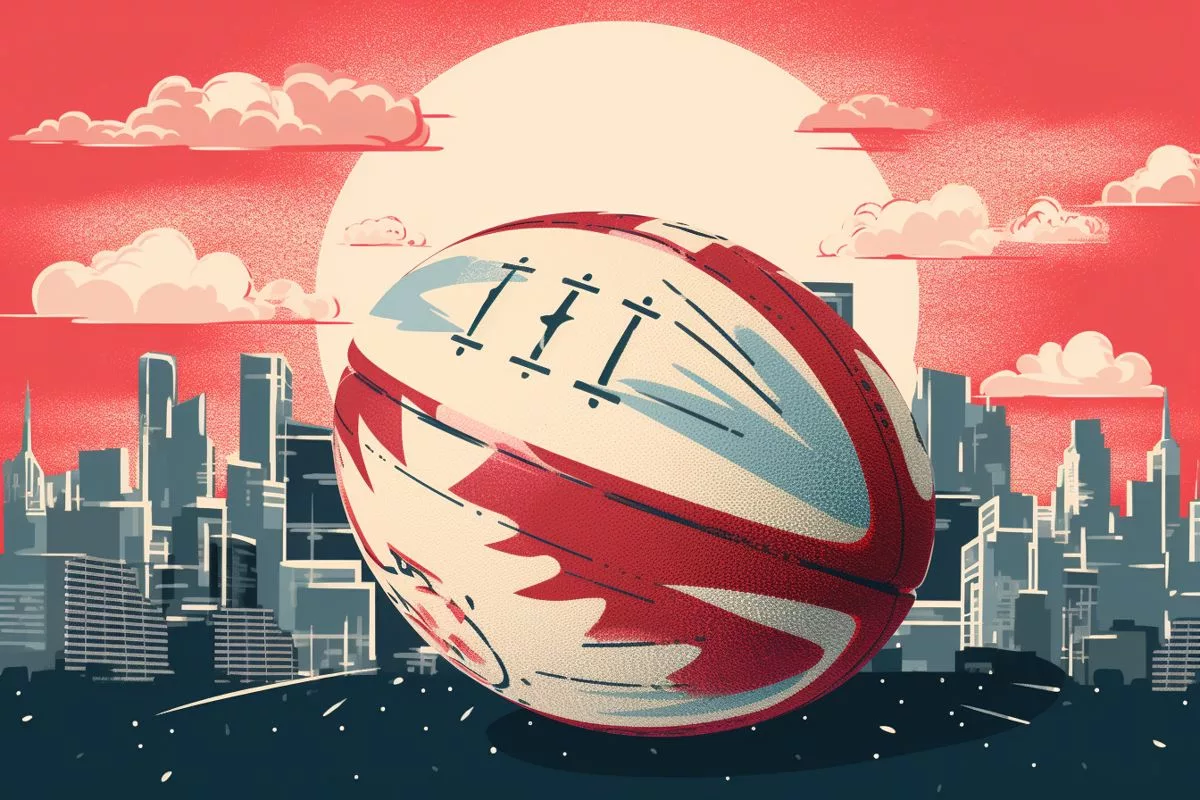Sam Cane, the former captain of the All Blacks and current Sungoliath rugby team member, suggests that the All Blacks should consider adopting the Springboks’ selection method of using players based overseas. Cane acknowledges the challenges faced by overseas players but emphasizes the importance of continual improvement in gameplay. He also recognizes the delicate balance between preserving traditions and embracing innovations in rugby and the need to maintain the mentor-mentee relationship between experienced and young players. Cane’s insights have incited serious reflection on the structure of New Zealand rugby.
Sam Cane suggests that the All Blacks should consider adopting the Springboks’ selection method, particularly their use of players based overseas. As a short-term contract holder, Cane acknowledges the challenges that overseas players face and the importance of continual improvement in gameplay. However, he also recognizes the potential downsides and the need to maintain the mentor-mentee relationship between experienced and young players. Cane’s insights illuminate the delicate balance between preserving traditions and embracing innovations in rugby.
The vibrant metropolis of Tokyo is a new home to Sam Cane, a freshly recruited player for the Sungoliath rugby team. Cane, previously the captain of the All Blacks, stands tall, exuding certainty and thoughtful introspection. His recent discussions have stirred the rugby community’s interest.
Notwithstanding his deep-rooted New Zealander identity, Cane has communicated his regard for the South African squad, the Springboks. The All Blacks can benefit from adopting the Springboks’ selection method, particularly their choice of using players based overseas, posits Cane. This perspective, which he feels is worth the All Blacks’ consideration, is not a solitary thought in his mind.
Cane has traveled from New Zealand’s Super Rugby Pacific to Japan’s Top League in his professional rugby journey. Other All Blacks’ veterans such as Richie Mo’unga, Shannon Frizell, Ardie Savea, Aaron Smith, Dane Coles, and Beauden Barrett have also made similar transitions. This trend has provoked curiosity about the future of New Zealand rugby and its policies.
Aspirations and Challenges Ahead
Even after relocating, Cane aspires to play for the All Blacks in the forthcoming July Tests against England and Fiji under the guidance of the new head coach, Scott Robertson. However, it’s uncertain whether he will retain the captaincy of the All Blacks, given the change in his location and head coach.
Cane draws on the Springboks’ experiences to highlight the possibility of players transitioning between leagues while still maintaining their international rugby prowess. He noted, “Many Springboks have demonstrated their capability to switch between League One and international rugby rather swiftly, continuing to perform optimally.”
He further emphasized the challenges he and other overseas players face. “Our challenge as short-term contract holders is to excel in our current league with the hope of re-entering the international rugby scene,” said Cane.
The Balance Between Tradition and Innovation
Cane believes in the importance of continual improvement in their gameplay. Striving for excellence and upholding high performance levels is crucial for making a case for their representation and contributing to the ongoing development of New Zealand rugby. “If we get another chance to represent the All Blacks, we need to demonstrate the enhancements in our gameplay, or at least maintain our previous form,” he stated.
However, Cane also recognizes the potential downsides. He admits the risk of destabilizing the mentor-mentee relationship between experienced and young players that is vital for nurturing new talent: “It’s equally crucial to have seasoned players guide the younger ones in the New Zealand rugby scene.”
His humility becomes evident as he refers to the complexity of the scenario: “There are many factors to consider, and this decision is beyond my remit.”
An Exciting Chapter in New Zealand Rugby
As the rugby world eagerly anticipates the forthcoming season, Cane’s suggestions have incited serious reflection on the structure of New Zealand Rugby. His ideas’ acceptance remains uncertain, but his dedication and passion for the sport are unquestionable. His insights illuminate the delicate equilibrium between preserving traditions and embracing innovations in rugby.
The upcoming months promise a lot for Cane and his fellow All Blacks in Japan. As they explore their new surroundings, their performances and experiences could potentially determine the future direction of New Zealand rugby. Therefore, Cane’s transition is more than just a personal career shift; it symbolizes the sport’s continuous evolution and is an intriguing addition to rugby’s grand narrative.
1. What does Sam Cane suggest the All Blacks should consider adopting from the Springboks’ selection method?
Sam Cane suggests the All Blacks should consider adopting the Springboks’ selection method of using players based overseas.
2. What does Sam Cane think is crucial for making a case for representation and contributing to the ongoing development of New Zealand rugby?
Sam Cane believes that striving for excellence and upholding high performance levels is crucial for making a case for representation and contributing to the ongoing development of New Zealand rugby.
3. What does Sam Cane acknowledge as the potential downside of adopting the Springboks’ selection method?
Sam Cane acknowledges the risk of destabilizing the mentor-mentee relationship between experienced and young players that is vital for nurturing new talent.
4. What challenges does Sam Cane admit that overseas players face?
As a short-term contract holder, Sam Cane acknowledges the challenges that overseas players face, such as excelling in their current league with the hope of re-entering the international rugby scene.
5. What is uncertain for Sam Cane about his role in the All Blacks after relocating?
It is uncertain whether Sam Cane will retain the captaincy of the All Blacks, given the change in his location and head coach, even though he aspires to play for the All Blacks in the forthcoming July Tests against England and Fiji.
6. What has Sam Cane’s transition to playing for the Sungoliath rugby team symbolized?
Sam Cane’s transition to playing for the Sungoliath rugby team symbolizes the sport’s continuous evolution and is an intriguing addition to rugby’s grand narrative.












